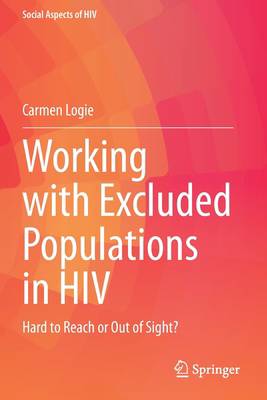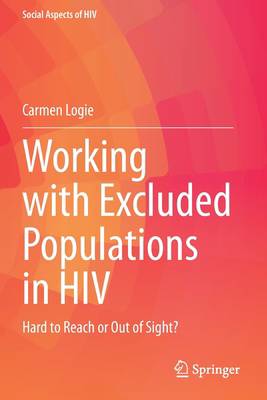
- Afhalen na 1 uur in een winkel met voorraad
- Gratis thuislevering in België vanaf € 30
- Ruim aanbod met 7 miljoen producten
- Afhalen na 1 uur in een winkel met voorraad
- Gratis thuislevering in België vanaf € 30
- Ruim aanbod met 7 miljoen producten
Omschrijving
This book, written decades into the HIV epidemic, reflects critically on the idea that the socially excluded populations often focused on in HIV research are in fact difficult to access and reach. The author broadly applies the concept 'hard to reach' to characterize populations that researchers find difficult to engage with. Social factors that produce marginalization and ultimately result in people choosing not to engage in research are not captured by the concept of 'hard to reach'. Limited attention has focused on how researchers can address the social factors that result in decisions to not engage in research. Disrupting the ways in which people are conceptualized as 'hard to reach' so as to refocus on transforming social systems and personal values, beliefs and approaches is understudied. This book uses case examples based on HIV research with Indigenous youth, internally displaced women, LGBTQ communities in the Global North and Global South, and persons at the intersection of these identities, to identify successful approaches to working with marginalized and often vulnerable communities and groups. The chapters signal the need for attention to five key social factors when developing successful approaches: context and storytelling; cultural humility; critical hope; imagination and possibility; and love, intimate inquiry, and the beloved community, if nations, individuals and communities are to address the epidemic in a sustainable and impactful way.
Specificaties
Betrokkenen
- Auteur(s):
- Uitgeverij:
Inhoud
- Aantal bladzijden:
- 156
- Taal:
- Engels
- Reeks:
- Reeksnummer:
- nr. 8
Eigenschappen
- Productcode (EAN):
- 9783030770501
- Verschijningsdatum:
- 7/07/2022
- Uitvoering:
- Paperback
- Formaat:
- Trade paperback (VS)
- Afmetingen:
- 156 mm x 234 mm
- Gewicht:
- 249 g

Alleen bij Standaard Boekhandel
Beoordelingen
We publiceren alleen reviews die voldoen aan de voorwaarden voor reviews. Bekijk onze voorwaarden voor reviews.









